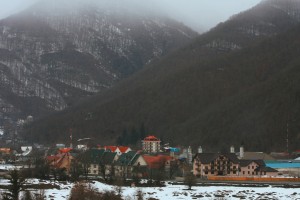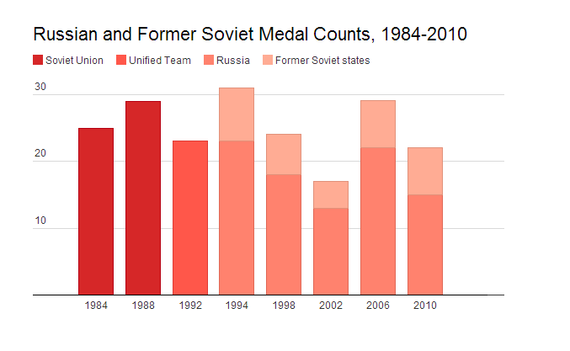
This week I have been in New York City for the first module of the Advanced Management Program in Media & Entertainment and went with the program participants to visit NBC News and luckily managed to see Alex Wallace, a graduate of the program before she flew out to Sochi for the Winter Olympics. Having been too busy teaching to focus on the issue I have been doing what I can to catch up.
Sustainable Sochi?

A quick search on the web finds a number of news items on environmental problems at the games. It seems one of the tunnels under construction collapsed damaging nearby buildings, villagers have been displaced from their homes, and damage has been done to the local wetlands which critics say will hurt the regions biodiversity.
The critical articles contrast this spotty record with Russia’s promise of a waste free, green games and the pledge to carry out integrated efforts to protect the environment and to build the Olympics based on sustainable principals.
Sochi’s Legacy
Trying to get past the hype and find the true environmental impact, I downloaded the official Legacy Report put out by Sochi’s organizers and what is clear is that Russia has accomplished nothing sort of a miracle in being able to hold the event at all and that the scope and scale of the project is enormous.

The mountain cluster of Sochi, about an hour from the city itself has taken a quiet sleepy village, Krasnaya Polyana and turned it into a modern ski resort in just a few short years. According to the Legacy report, many houses in the village were not connected to the inadequate local sewer system, neither Sochi or Krasnaya Polyana had adequate electric and hot water infrastructure and of course the roads and railways were not even close to what has been built today. Examples of what has been accomplished include 4 power plants, 3 sewage treatment plants and train stations which were built reportedly incorporating sustainable principals.
Clearly modernizing such a place so much and so fast will damage its environment. Last summer I had the opportunity to visit Park City Utah, site of the 2002 Winter Olympics and Paralympics and while I found the town charming and understand that the skiing is great, the games and subsequent development has clearly had a negative environmental impact on the almost pristine wilderness that was there before.
It is probably too early to tell the degree to which the different projects at Sochi were done in an environmentally responsible way and what damage has been done to the flora and fauna of the region. An interesting question is why build Sochi at all and the answer appears to lie in more geopolitical concerns.
Back to the USSR
Matt Ford recently wrote an article in the Atlantic that Sochi is Vladimir Putin’s attempt to restore the former Soviet Union’s prestige in the winter games that has suffered in the last few games. In fact, the Legacy report explicitly points out that the construction of Sochi was necessary because all of the former soviet training areas are now located in independent countries such as Georgia, Armenia, Latvia, Belarus, and the Ukraine!


